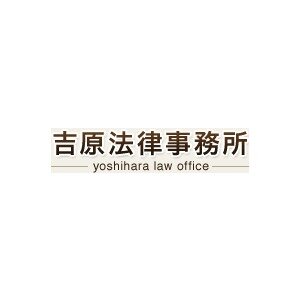Best Elder Abuse Law Lawyers in Japan
Share your needs with us, get contacted by law firms.
Free. Takes 2 min.
Or refine your search by selecting a city:
List of the best lawyers in Japan
About Elder Abuse Law in Japan
Elder abuse law in Japan aims to protect elderly citizens from various forms of abuse, including physical, emotional, and financial harm. The Japanese government has enacted specific legislations such as the Act on the Prevention of Elder Abuse, Support for Caregivers of Elderly Persons and Other Related Matters, to address the rising concerns related to elder abuse. These laws ensure the welfare and rights of the elderly, offering measures for prevention, detection, and protection, while also setting penalties for abusers.
Why You May Need a Lawyer
There are several situations where you may require legal assistance in elder abuse law. These include when you suspect an elderly person is being abused or neglected by family members or caregivers, if an elderly person is facing financial exploitation, if there are disputes over guardianship, or if more general legal advice is needed to secure the safety and welfare of an elder. Lawyers specializing in elder abuse can provide expert advice and representation to safeguard the rights and well-being of the elderly.
Local Laws Overview
Under Japan's elder abuse laws, there are specific provisions that aim to prevent and address abuse cases. Some key aspects include mandatory reporting by caregivers and citizens, swift investigation processes by local governments, support systems for caregivers, and protective measures for the abused elderly. Additionally, Japan has been enhancing community support structures and has set up hotlines and services to assist in recognizing and dealing with elder abuse situations.
Frequently Asked Questions
1. What constitutes elder abuse under Japanese law?
Elder abuse can include physical harm, neglect, emotional abuse, sexual abuse, and financial exploitation.
2. Who can report elder abuse?
Anyone, including caregivers, family members, and third parties, can report suspected elder abuse cases to local authorities.
3. What protections do victims of elder abuse have?
Victims are provided with protective measures, such as relocation assistance and counseling, and legal actions can be pursued against the abuser.
4. Are there penalties for elder abuse in Japan?
Yes, there are penalties that may include fines and imprisonment depending on the severity of the abuse.
5. What role do local governments play in addressing elder abuse?
Local governments are responsible for investigating reported cases, providing support to victims, and imposing necessary protective measures.
6. Can elderly individuals seek help directly?
Yes, elderly individuals can report abuse directly to local authorities or seek help from support organizations and hotlines.
7. Is financial exploitation considered a form of elder abuse?
Yes, financial exploitation, such as unauthorized use of an elderly person's funds, is considered elder abuse.
8. Are there specific caregiver obligations under the law?
Caregivers are obligated to provide safe and respectful care and must report suspected abuse.
9. Can disputes over guardianship be considered elder abuse?
Disputes themselves aren't necessarily abuse, but exploitation or manipulative guardianship actions can be.
10. How can legal action be initiated in elder abuse cases?
Legal action can be initiated by reporting the abuse to authorities and consulting with an elder abuse lawyer who can guide the next legal steps.
Additional Resources
Several resources can assist those seeking help, including government agencies such as the Ministry of Health, Labor and Welfare, municipal welfare offices, elder support organizations, and legal aid services that specialize in elder abuse. These bodies provide counseling, reporting mechanisms, and guidance.
Next Steps
If you need legal assistance in elder abuse law, consider consulting with a specialized attorney experienced in elder rights and protection laws. Collect any evidence of abuse, contact your local welfare office or use legal hotlines to report the situation, and seek advice on the next steps to take to ensure the well-being of the affected individual.
Lawzana helps you find the best lawyers and law firms in Japan through a curated and pre-screened list of qualified legal professionals. Our platform offers rankings and detailed profiles of attorneys and law firms, allowing you to compare based on practice areas, including Elder Abuse Law, experience, and client feedback.
Each profile includes a description of the firm's areas of practice, client reviews, team members and partners, year of establishment, spoken languages, office locations, contact information, social media presence, and any published articles or resources. Most firms on our platform speak English and are experienced in both local and international legal matters.
Get a quote from top-rated law firms in Japan — quickly, securely, and without unnecessary hassle.
Disclaimer:
The information provided on this page is for general informational purposes only and does not constitute legal advice. While we strive to ensure the accuracy and relevance of the content, legal information may change over time, and interpretations of the law can vary. You should always consult with a qualified legal professional for advice specific to your situation.
We disclaim all liability for actions taken or not taken based on the content of this page. If you believe any information is incorrect or outdated, please contact us, and we will review and update it where appropriate.
Browse elder abuse law law firms by city in Japan
Refine your search by selecting a city.
















